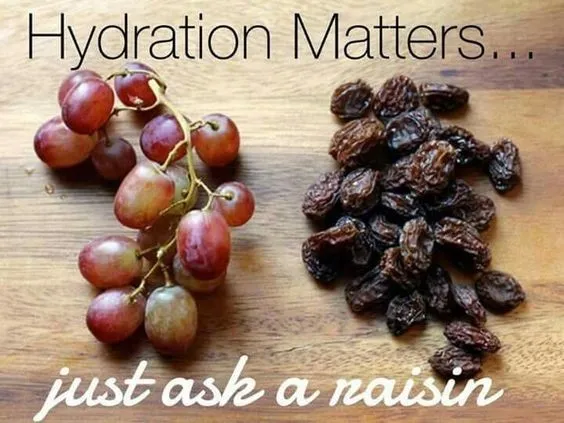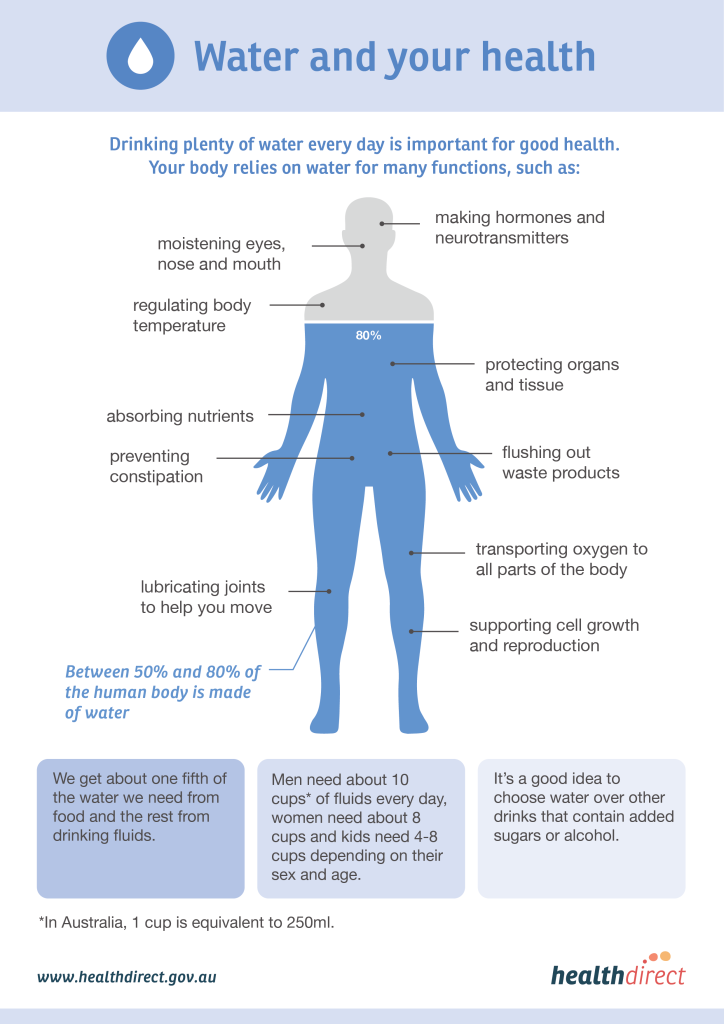Water is essential to life, and staying hydrated is one of the simplest yet most crucial ways to maintain overall health. Our bodies are made up of around 60% water, and nearly every system in the body depends on it to function properly. Despite this, many people don’t drink enough water daily, leading to dehydration and health issues over time. This article explores the importance of hydration and how it contributes to maintaining optimal health.
Why Hydration Matters
Water plays a vital role in numerous bodily functions, from regulating body temperature to facilitating digestion and nutrient absorption. Proper hydration ensures that your cells receive the oxygen and nutrients they need to function efficiently. It also helps in detoxification, as water flushes out toxins through urine and sweat. Without enough water, the body’s systems begin to suffer, leading to fatigue, impaired concentration, digestive problems, and even more severe health issues.

Key Benefits of Staying Hydrated
- Boosts Physical Performance: Staying hydrated is critical for anyone engaging in physical activity. During exercise, your body loses water through sweat. If you don’t replenish these fluids, it can lead to reduced endurance, increased fatigue, and a higher risk of overheating. Even mild dehydration can affect performance and recovery, so athletes and fitness enthusiasts should prioritize hydration to optimize their efforts.
- Supports Cognitive Function: Dehydration can also impair cognitive function. Studies show that even slight dehydration can affect mood, memory, and concentration. Water helps maintain proper brain function, allowing for clearer thinking, quicker responses, and improved overall mental clarity. Proper hydration is especially important for students, professionals, or anyone who relies on mental sharpness throughout the day.
- Promotes Healthy Digestion: Water aids in the digestion and absorption of nutrients, ensuring that your body gets the most from the food you eat. It helps break down food in the stomach, making it easier for nutrients to be absorbed in the intestines. Water also prevents constipation by keeping your digestive system moving efficiently. Inadequate hydration can lead to sluggish digestion and an increased risk of digestive discomfort.
- Aids in Detoxification: Your kidneys rely on water to filter out waste products from the bloodstream and excrete them through urine. When you’re properly hydrated, your body is better equipped to eliminate toxins, helping to maintain healthy kidneys and a more effective detoxification process. Water also supports healthy skin by flushing out impurities and keeping it hydrated from within.
- Helps Manage Weight: Drinking water before meals can help control appetite and prevent overeating. Often, feelings of hunger are mistaken for thirst, leading to unnecessary snacking. By staying hydrated, you can better regulate your food intake, which can contribute to weight management. Additionally, water boosts metabolism, helping the body burn calories more efficiently.

How Much Water Do You Need?
While the general recommendation is to drink eight 8-ounce glasses of water a day (the “8×8” rule), the amount of water you need depends on various factors such as age, gender, physical activity level, and climate. People who exercise or live in hot environments may need more water to stay adequately hydrated. A good rule of thumb is to drink water when you’re thirsty and monitor your urine color—it should be light yellow. Dark yellow urine is a sign you may need more fluids.
Tips for Staying Hydrated
- Carry a reusable water bottle to make it easier to drink throughout the day.
- Eat water-rich foods like fruits and vegetables, including cucumbers, watermelon, and oranges.
- Set reminders on your phone to drink water regularly, especially if you have a busy schedule.
- Opt for herbal teas or infused water if plain water becomes monotonous.

Conclusion
Hydration is the foundation of optimal health, affecting everything from physical performance to cognitive function. By making a conscious effort to drink enough water daily, you can support your body’s systems, improve well-being, and maintain long-term health.














Leave a comment